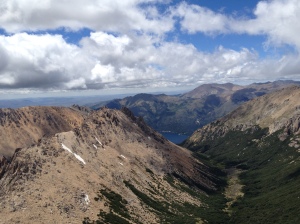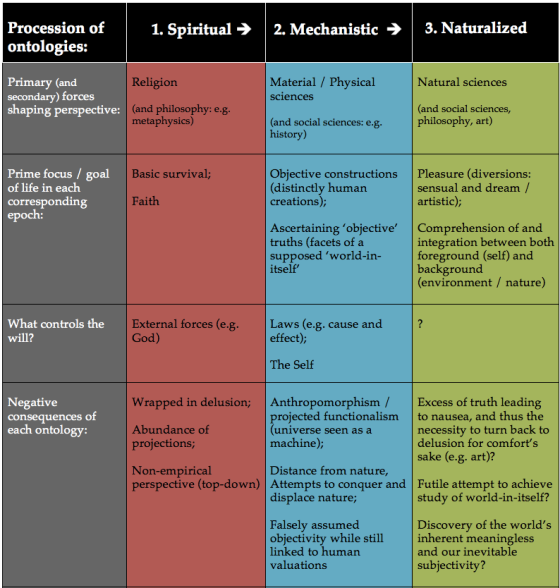In this series, starting with Friedrich Nietzsche’s proclamation of God’s death, I’ll examine the shift towards what could be described as a naturalized understanding of the world — an interpretation lacking in both the religious projections of the spiritual era and the lingering anthropocentric projections of the following scientific, or mechanistic, ontology. Drawing from the works of Nietzsche, Jung, and other thinkers I’ll then propose my own analysis of the progression of naturalization, and how it can be arrived at…
‘God is dead’
In order to interpret man’s relationship with the world around him, both in terms of projection and distinction, the monumental shift from the metaphysical, religious perspective to the naturalized perspective should first be charted, including its most significant event: the death of God. Nietzsche wrote in The Gay Science (full text PDF here) that “God is dead,” and we humans are his murderer (GS Sec. 125). “God” in this case isn’t a personal deity but the God of civilization — the defining explanatory force for how the world operates. According to Nietzsche, the death of God leads to the positive effects of allowing solitude, re-valuation of good things due to the decline of morality (GS Sec. 292), and a dismissal of faith, which once aroused nausea (GS Sec. 76). However, the death of God also leads to “metaphysical need” (GS Sec. 151). The death of God is an indication of the receding of the shadow of religion from its reign over human consciousness — that is, the reduction in the use of religious explanations for how the universe operates and our roles in it. Continue reading →


